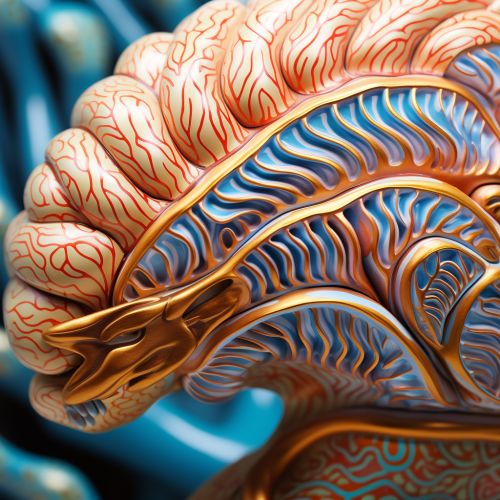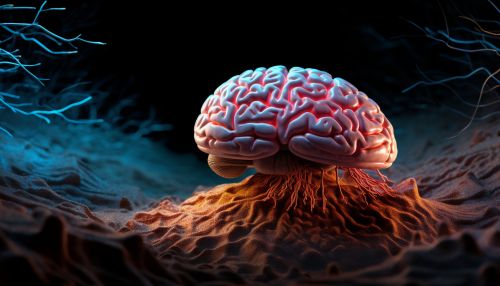Cognitive Neuroscience of Cognitive and Social Psychology
Introduction
Cognitive neuroscience is a branch of neuroscience that studies the biological processes that underpin cognitive functions. It is a multidisciplinary field that combines elements of psychology, neurobiology, computer science, and other disciplines to understand the nature of cognition from a neural point of view. Cognitive and social psychology, on the other hand, are subfields of psychology that focus on the mental processes that drive behavior and the social interactions that shape these processes respectively. The cognitive neuroscience of cognitive and social psychology, therefore, refers to the study of the neural mechanisms that underlie cognitive and social processes.
Cognitive Neuroscience
Cognitive neuroscience emerged as a discipline in the late 20th century, following advances in neuroimaging technologies such as fMRI and PET. These technologies allowed scientists to observe the brain in action, providing a window into the neural basis of cognition. Cognitive neuroscience is concerned with understanding how the brain enables the mind, focusing on how neural circuits process information to generate behavior.


Cognitive Processes
Cognitive processes refer to the mental actions or operations that we perform when we acquire, process, store, and use information. These processes include perception, attention, memory, language, problem-solving, and decision-making. Cognitive neuroscience seeks to understand how these processes are implemented in the brain, studying the neural mechanisms that underlie them.
Neural Mechanisms
Neural mechanisms refer to the physical and chemical processes that occur within the brain to enable cognition. These mechanisms involve the interaction of billions of neurons, which communicate with each other through electrical and chemical signals. Cognitive neuroscience studies these mechanisms at various levels, from the molecular and cellular level to the level of neural networks and systems.
Cognitive Psychology
Cognitive psychology is a branch of psychology that studies mental processes such as "how does the mind represent reality?", "how is information processed?", and "how is it that we remember, understand, and think?". It is concerned with the internal mental states of individuals and how they influence behavior.
Perception
Perception refers to the process of interpreting sensory information to understand our environment. Cognitive psychologists study how we perceive the world around us, examining processes such as visual perception, auditory perception, and tactile perception.
Memory
Memory is the cognitive process of encoding, storing, and retrieving information. Cognitive psychologists study various aspects of memory, including short-term and long-term memory, episodic memory, semantic memory, and procedural memory.
Attention
Attention refers to the cognitive process of selectively focusing on one aspect of the environment while ignoring other things. Cognitive psychologists study how we allocate our attention, how we shift our attention, and how attention influences our perception and memory.
Social Psychology
Social psychology is the scientific study of how individuals' thoughts, feelings, and behaviors are influenced by the actual, imagined, or implied presence of others. It is concerned with understanding the social dynamics that shape human behavior, focusing on topics such as social perception, social influence, and social interaction.
Social Perception
Social perception refers to the process of interpreting information about other people to form impressions and make judgments. Social psychologists study how we form impressions of others, how we interpret their behavior, and how these impressions influence our interactions with them.
Social Influence
Social influence refers to the ways in which individuals change their behavior to meet the demands of a social environment. Social psychologists study various forms of social influence, including conformity, obedience, and persuasion.
Social Interaction
Social interaction refers to the process by which individuals act and react in relation to others. Social psychologists study the dynamics of social interaction, examining how individuals interact in groups and how these interactions shape individual behavior.
Cognitive Neuroscience of Cognitive and Social Psychology
The cognitive neuroscience of cognitive and social psychology involves the study of the neural mechanisms that underlie cognitive and social processes. This field combines the methods and theories of cognitive neuroscience with those of cognitive and social psychology to understand how the brain enables cognition and social behavior.
Neural Basis of Cognitive Processes
Cognitive neuroscientists study the neural basis of cognitive processes, examining how the brain implements these processes. For example, they may study how the brain processes visual information to enable visual perception, or how the brain stores and retrieves information to enable memory.
Neural Basis of Social Processes
Cognitive neuroscientists also study the neural basis of social processes, examining how the brain enables social perception, social influence, and social interaction. For example, they may study how the brain processes social information to form impressions of others, or how the brain changes its activity in response to social influence.
Conclusion
The cognitive neuroscience of cognitive and social psychology is a rapidly evolving field that seeks to understand the neural mechanisms that underlie cognitive and social processes. By combining the methods and theories of cognitive neuroscience with those of cognitive and social psychology, this field provides a deeper understanding of how the brain enables cognition and social behavior.
